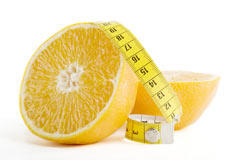
After you've kept your food diary for a week or so, the next step is to improve the quality of your diet, so start looking out for the following:
Foods you eat regularly
Check your diet 'Summary' (on the Food Diary page) to see which foods are the biggest fat contributors in your diet. Fat is the most concentrated source of calories at 9 cals per gram - that's twice as many as carbohydrate or protein. So cutting out high fat foods will have the biggest effect on reducing calories in your diet.
And a word on the fat figure in your food diary! Don't feel you have to reach this - treat it as a maximum limit. If you're eating less that's fine.
Check your portion sizes
One of the easiest ways to reduce calories is to eat smaller portions. Still eat what you enjoy, but have 30% less.
One of the most common reasons for weight loss slowing is that your portion sizes can start to creep up again over time. If you hit a plateau and don't lose any weight for a week or two, always check your portion sizes, and if necessary go back to weighing food.
Look at food content
Start replacing pre-prepared and processed foods with healthier, fresh and organic options. You are in complete control of what goes into your meal, and you can calorie count is using the My Meals recipe calculator on the website.
Choose low calorie foods that fill you up but that are also high in taste and nutrition. Rather than 'wasting' calories on full fat products, find the best low calorie alternatives that taste great and are as close to the real thing as possible (but check food labels to make sure that low fat doesn't equal high sugar instead).
Understand when & why you overeat
You can record the exact time you eat into your food diary, and also use the 'Diary Notes' to record how you feel. If you have a bad day and overeat, try and understand the reasons for it. Are you an emotional eater? If so, try and identify the trigger - was it anger, boredom, stress? Also look at the times you overeat to see if there's a pattern. For example, did you skip breakfast or leave it too long between meals?
Understanding your relationship with food can help you get through your weaker moments by either planning activities to take your mind off eating or learning to deal with your emotions in ways other than through food.
Reward your success
It is really important to reward yourself for your weight loss success. This not only motivates you to carry on towards your goal, but many studies have also shown that people who are given a reward for losing weight do tend to stick with their eating plan for a longer period of time.
Set yourself milestones - either half a stone / 3kg, or the next 10% target you want to lose.
Colette Morris SAC Dipl. (Diet &Nutrition)
http://healthyweightloss.herbalcoach.com/
Colette Morris is a qualified Nutritionist and Herbalife Independent Distributor so if you want advice on your diet for weight loss, weight gain or sports nutrition, email me LondonFitGirlsClub@gmail.com

No comments:
Post a Comment
Thanks for Sharing Your thoughts, be sure to come back and leave some more!